I feel very strongly that I am under the influence of things or questions which were left incomplete and unanswered by my parents and grandparents and more distant ancestors. It often seems as if there were an impersonal karma within a family, which is passed on from parents to children. It has always seemed to me that I had to … complete, or perhaps continue, things which previous ages had left unfinished.
Right now, everywhere in the media and social media it seems there are a lot of conversations around trauma: from the lasting brain dysregulation caused by childhood neglect to Complex Post-Traumatic Stress (CPTSD) due to war and domestic violence. We are coming to a greater understanding that trauma is a neurological issue caused by physical changes to brain function, rather than a purely psychological one which is why traditional approaches such as ‘talk therapy’ and ‘cognitive behavioural therapy’ not only may fail to heal it but could, in fact, make it worse.
While the sheer amount of trauma in our society can feel overwhelming, I see these conversations as a very positive thing. We can’t heal what we don’t understand, and unfortunately, trauma is the curse that keeps on cursing. It not only affects the individual who experienced the original trauma but can – and often does – get passed on to second and third generations. When this happens, it’s referred to as ‘intergenerational trauma’.
In 1966, Canadian psychiatrist Vivian M. Rakoff noted high rates of psychological issues including anxiety and depression, as well as a predilection to chronic illnesses, among the offspring of Holocaust survivors. More recent studies are now revealing similar results in individuals who had ancestors that were born into slavery or who lived under colonisation where indigenous populations lost entire family lines to genocide. Branches of feminism refer to ‘female bondage’ or a ‘pain body’ of generations of women who have suffered violence, a lack of personal liberty and dehumanisation.
In the past, honouring and understanding the struggle of our ancestors was relegated to pagan practices and was considered a rather primitive notion. However, we are now in an age where science is beginning to examine, and in many cases confirm, what has been intuitive wisdom for centuries. Epigenetics is the study of how the environment, our behaviours and even our thoughts can change our genetic expression. One current area of scientific discussion is how those changes of gene expression may get passed down to future generations.
According to Mark Wolynn, author of It Didn’t Start With You: How Inherited Family Trauma Shapes Who We Are and How to End the Cycle, when our grandmothers were pregnant with our mothers, the precursor cell of the egg we would one day become was already present in our mothers’ ovaries. So, there was a time when three generations were sharing a common cellular environment. This is important because when our grandmother felt stress from her environment, it produced chemicals in her bloodstream that were shared with her unborn child.
Although more research is needed about the link between intergenerational trauma and epigenetics, I find the concept fascinating. In my book, I share the story of my Russian grandmother and mother and the traumatic experiences they went through in fleeing their homes due to wars and revolutions, witnessing atrocities and executions, losing loved ones in air-raids and becoming refugees with an uncertain future on a small tropical island in the Philippines.
Although my grandmother died before I was born, I have always felt very close to her. My mother used to tell me that I reminded her of her mother with my ironic sense of humour and my abiding love of animals, in particular cats. But like many children of refugees, I also inherited a heavy burden too. I was brought up in beautiful, safe Australia but I was aware of being different to my schoolmates.
While they seemed to have dozens of aunties, uncles, cousins and even two complete sets of grandparents, I had only my mother’s photograph album full of sepia pictures of exotic men and women who had died in wars or had been executed or sent to work camps. While my friends seemed impossibly carefree, I felt I was carrying the weight of the Russian Revolution on my shoulders. I understood what a ‘gulag’ was before I even went to school.
When I was sixteen years of age – long before the concept of intergenerational trauma was discussed in popular culture – I remember one evening sitting quietly in my room and feeling that I was being given a very strong sense of given a mission to fulfil an obligation to my ancestors. I can’t exactly explain how this knowledge came to me, but I keenly felt it was my duty to honour all the sacrifices and struggles they had gone through that enabled me to be born safely in Australia. I would live fully and richly to complete a story that they had started but not been able to finish. It is that quest that has seen me travel, become a writer, dance, learn about other cultures, and do charity work on behalf of animals.
It was only after I finished writing Emboldened that I came across the quote from Carl Jung that I included at the beginning of this blog - and it made perfect sense to me. Because our ancestors not only pass on their trauma to us, but they pass on their strength and resilience to overcome challenges. According to Rachel Yehuda, Professor of Psychiatry and Neuroscience at the Mount Sinai School of Medicine, the purpose of epigenetic change is to increase our ability to cope with stressful situations. She believes this is a positive thing: ‘Who would you rather be in a war zone with? Somebody that’s had previous adversity and knows how to defend themselves? Or somebody that has never had to fight for anything?’
But that strength doesn’t only have to come from our direct ancestors. We are also just touching the tip of the iceberg in understanding ‘Collective consciousness’ and a sense of shared human history, which makes us all connected to each other. Which is why I find studying biographies and history so fascinating. There is much that those who came before us can teach us about life and our own challenges.
In Emboldened, I share the stories of women who have influenced both my fiction and my life in terms of resilience, purpose, passion and connection. I hope that in conveying these stories to my readers, I can encourage them to find the inspiration they need to overcome their own challenges and to live boldly and fully.
‘I absolutely loved this truly remarkable & unique new release. It had me madly Googling further information about the icons mentioned, my interest having been piqued. It left me in awe of Belinda's ancestors and tragedy that so deeply impacted their lives.
It also left me reflecting on my own life so far, about my many blessings amidst some great losses, and opening myself up to fully embrace the dreams I have for the future.’
— Michelle on Goodreads on Emboldened
My Books in Order
For readers who want to read the books in order, I’ve listed my novels and non-fiction book in order by publication date for you.
Perfect Gifts for Mother’s Day
UPCOMING EVENTS
MELBOURNE
❦ THURSDAY, May 4th
Brighton Library Talk
SYDNEY
❦ SATURDAY, May 6th
Belinda Alexandra in Conversation with Claudine Tinellis
❦ WEDNESDAY, May 10th
Berkelouw’s Mona Vale
❦ THURSDAY, June 22nd
Woollahra Library
❦ WEDNESDAY, July 26th
Sutherland Library In Conversation with Anna Loder
❦ THURSDAY, AUGUST 10th
Hornsby Library Belinda Alexandra in Conversation with Michaela Kalowski
BATHURST
❦ SATURDAY, JUNE 3
Bathurst Library
Keep an eye out next week for a special Emboldened bonus in your inbox.
Until then be kind to yourself,
Love Belinda XX


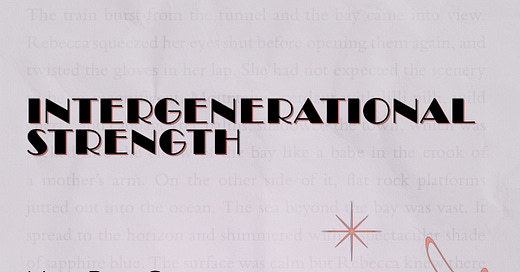



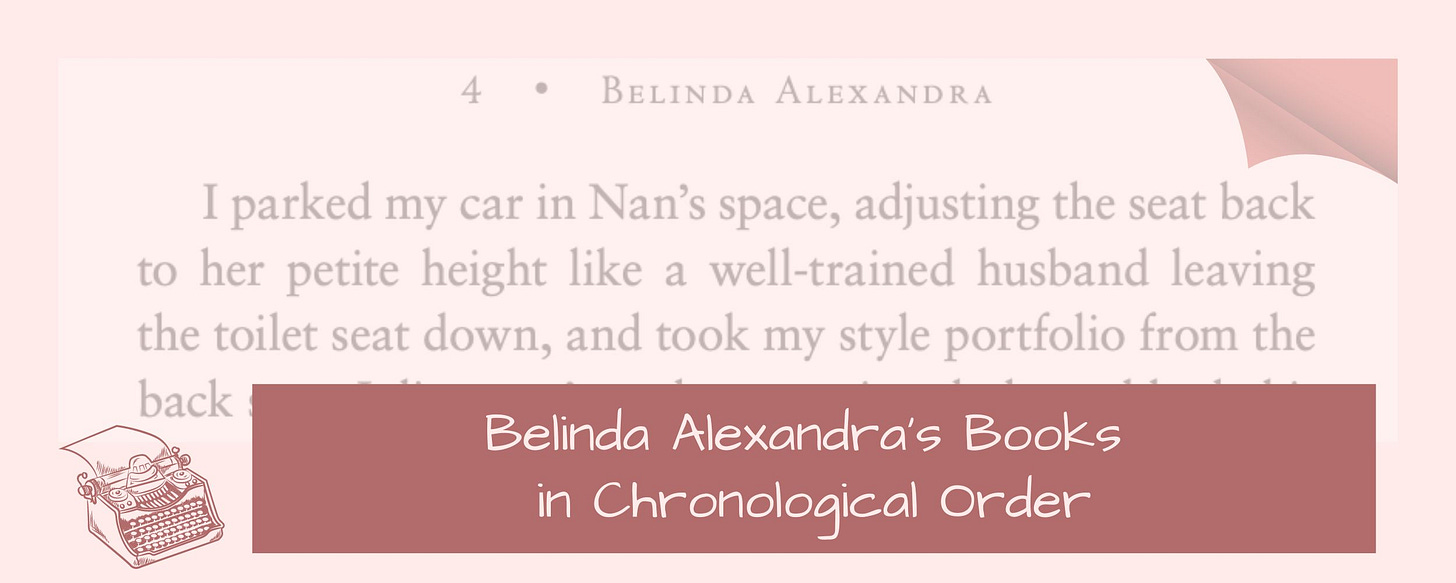
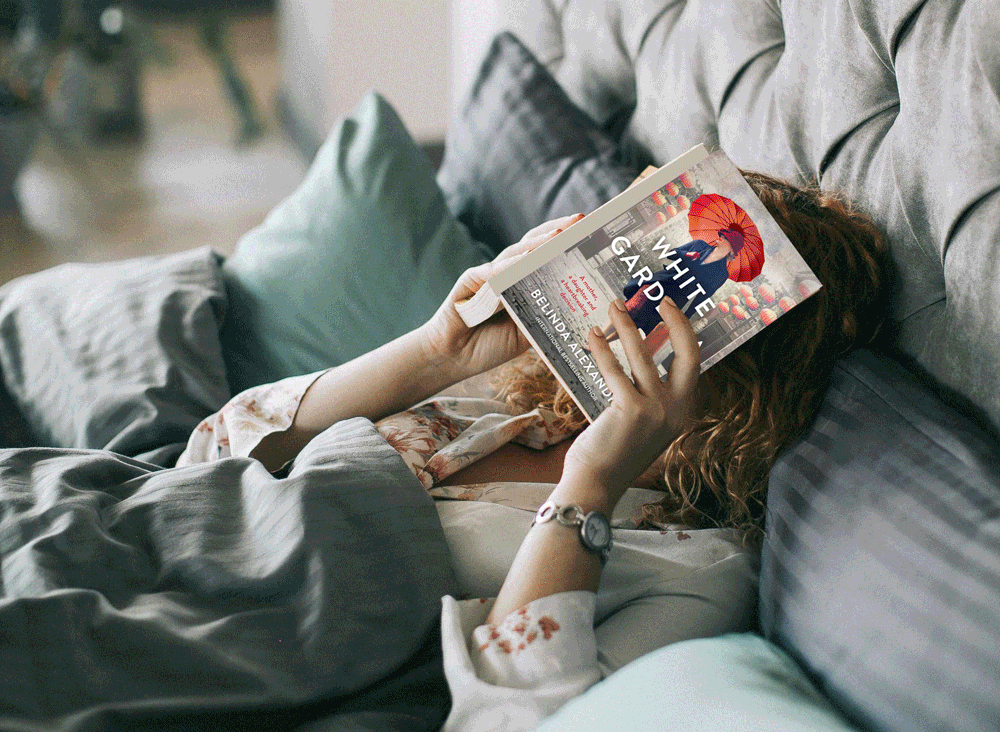
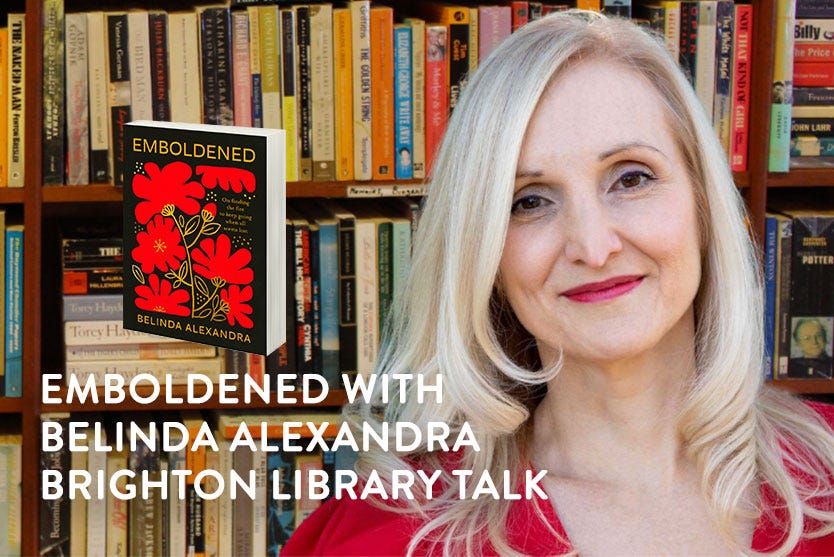
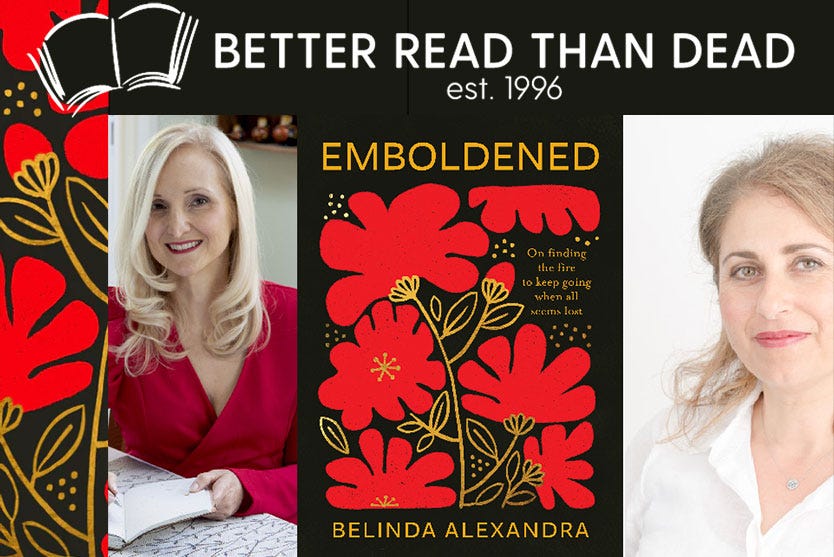
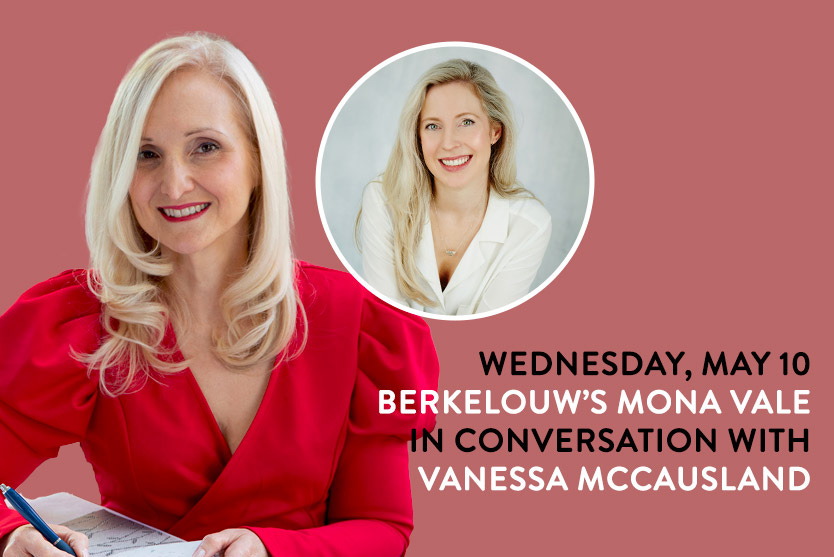
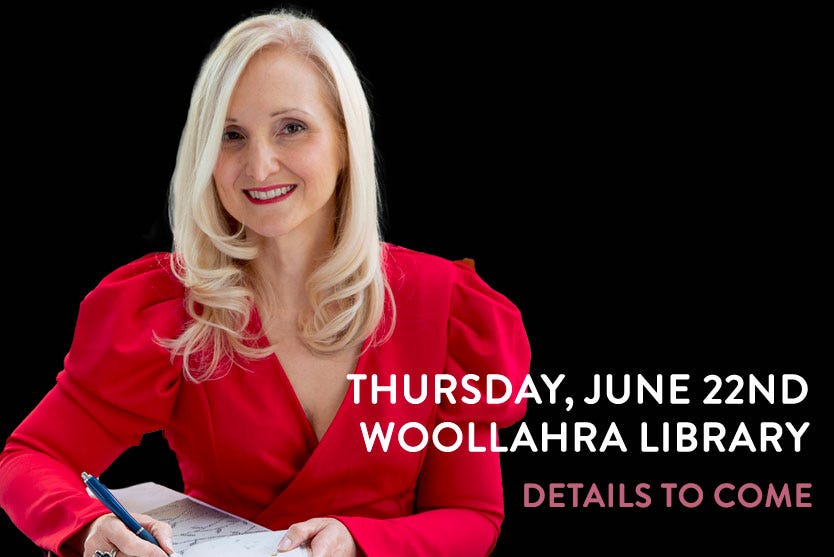
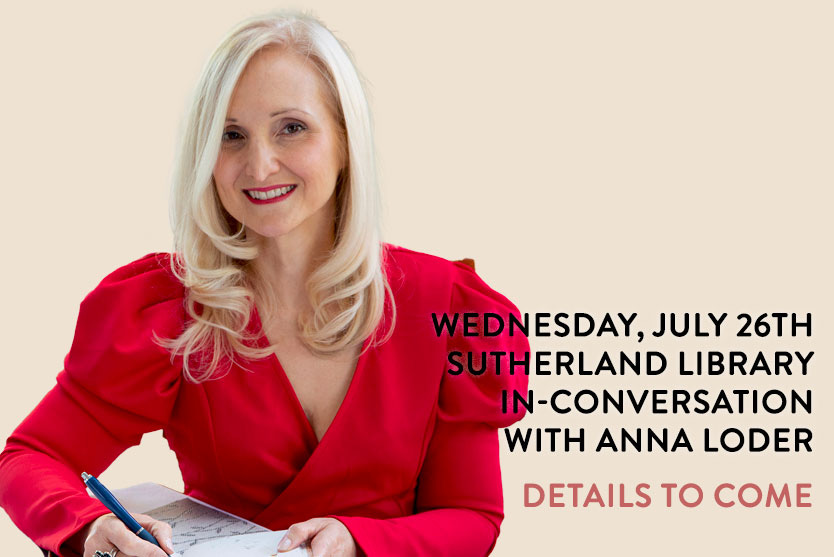
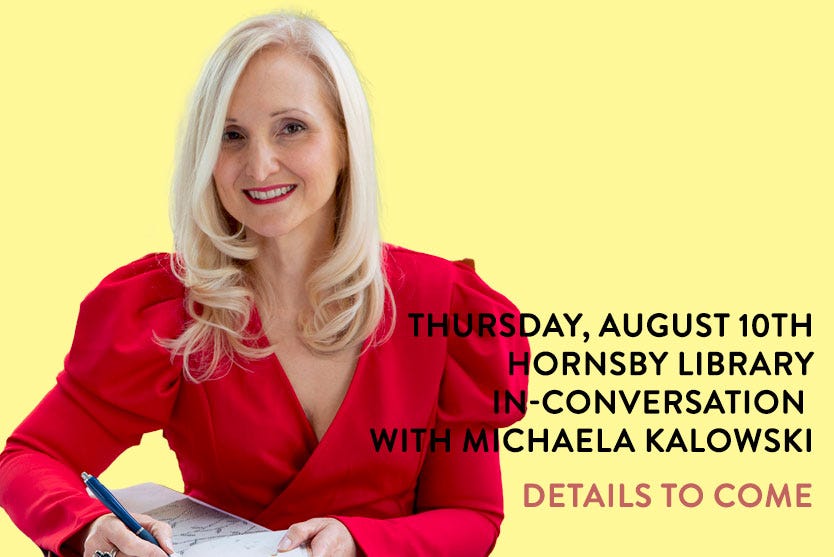
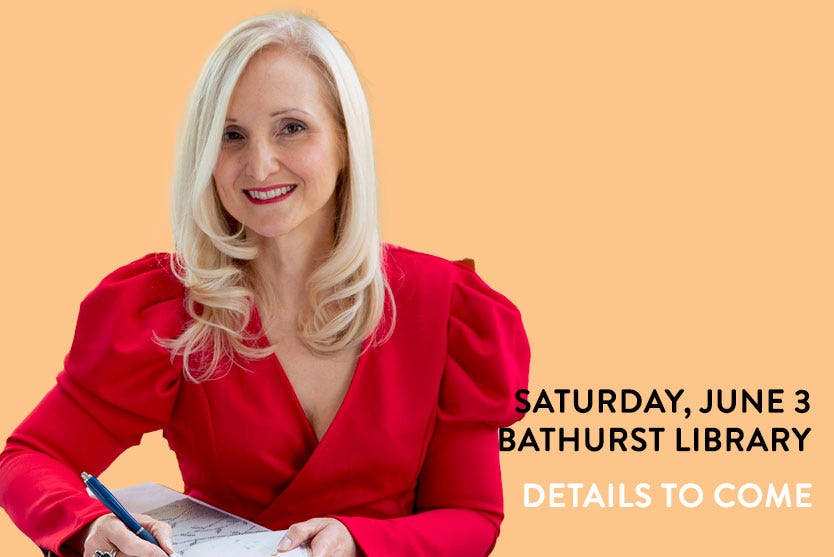
Thank you for this wonderfully thought-provoking article. I especially loved the quote you found from Jung. Without consciously choosing to do so, I suspect my own novel is trying to resolve some unfinished business from my maternal ancestry.